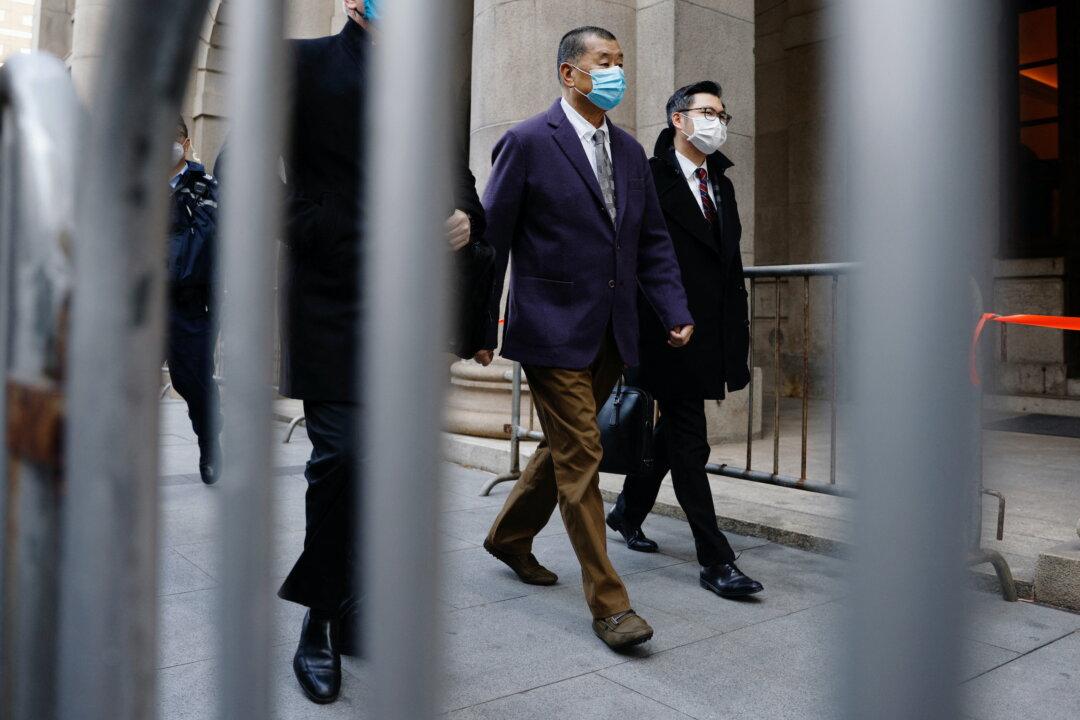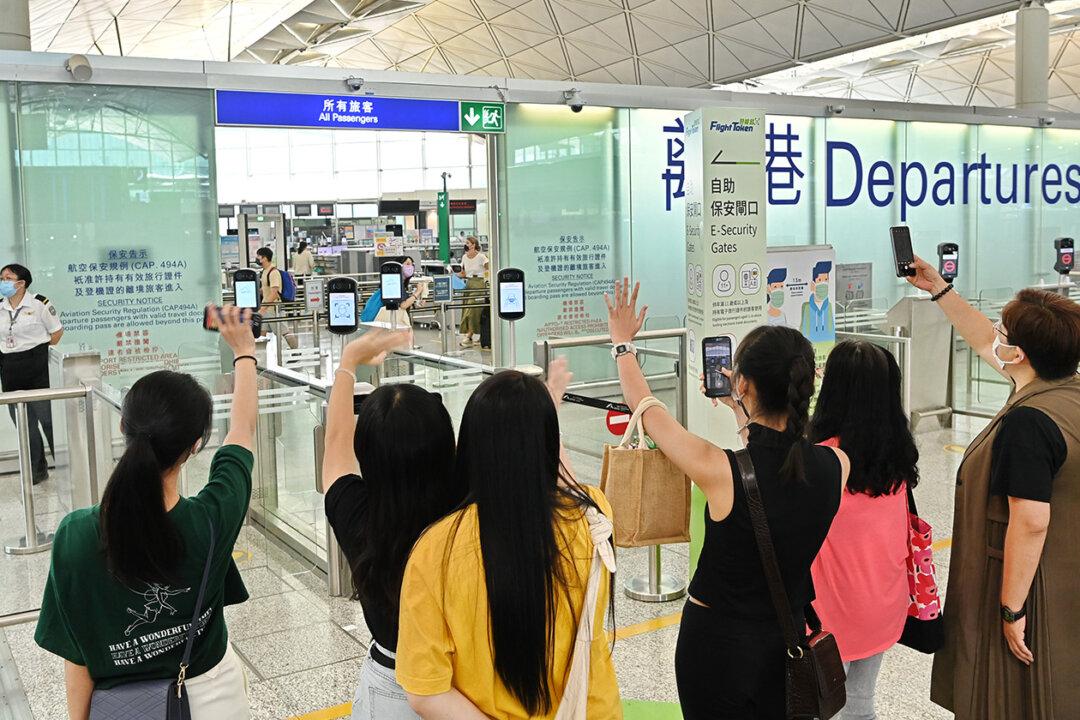On Nov. 28, the Court of Final Appeal (CFA) of Hong Kong ruled against the Department of Justice (DoJ) of the Hong Kong government after the department filed its fourth attempt to block Tim Owen-the British King’s Counsel (KC) from being hired by Jimmy Lai Chee-ying, the founder of Next Media.
The result is not satisfactory to the pro-Beijing politicians and mouthpieces.
Later on the same day, Chief Executive John Lee said to the press that relevant cases would be submitted to the central government and suggested that the NPC’s standing committee make a ruling concerning the “Hong Kong National Security Law” to clarify the relevant issue, that is, whether a lawyer or barrister “without local qualification” can handle cases involving “endangering national security.”
The Court of Final Appeal: The New Point Submitted Not Permitted on Appeal
In the Court of Final Appeal’s decision, it decided that since the Secretary for Justice (SJ) raised a new point that had not been presented before to the Chief Judge or the Court of Appeal, the Appeal Committee (AC) held that the SJ had not made a proper case for the granting leave to appeal and so dismissed the application.The Fight of Two Legal Systems
Different from the mainland, Hong Kong has retained common law and equity as its legal system, like those of the British and American, even after the transfer of sovereignty to China in 1997.Nevertheless, since the Chinese Communist Party (CCP) implemented the NSL in Hong Kong in 2020, the cases related to NSL are all handled by designated national security law judges who are appointed by the Chief Executive, and the court upholds the decision for no jury at the national security trial.
Local Party Media Proposes to ‘Decolonize’ HK’s Judicial System
On the front-page headline of local party media Ta Kung Pao on Nov. 25, it stated and seemingly put pressure on the court, claiming that the CFA has the responsibility to veto Jimmy Lai’s appointment of a British barrister. In its editorial of the same day, titled “The court has the responsibility to safeguard national security,” it repeated the same rhetoric claiming, “all walks of life in HK earnestly anticipate” the court can make a judgment ”in favour of safeguarding national security.”Commentary: All Views Just to Pin Jimmy Lai with the Anti-Extradition Movement
Simon Li (pen name), a current affairs commentator, said in an online program “Precious Dialogues” that the only reason for the pro-establishment camp to voice their opposition, in this case, is that if they do not stand up in opposition to anything, “they might receive an adverse assessment from above [the CCP].” By doing so, they can show their allegiance to the preaching once advocated by Chairman Mao, that is, ”I oppose whatever my enemy supports.” Li further pointed out that the CCP would also like to achieve an effect this time, which is to make Lai seen as betrayed by all his close companions. When that is realized, his former colleagues will be more willing to come forward and testify against him.Ng Chi-sum, a senior media person, pointed out in his online program that if we need to look at the issue of nationality and “loyalty,” we should not just limit that to the lawyers in representation but also the nationality of the judges. He also questioned the real motives pursued by the pro-establishment camp. Are they also targeting the complete abolition of the non-permanent judges’ system?
He went on to point out that no one has ever raised or interfered with the nationality of the defence lawyers in the past. But now the pro-establishment camp, out of fear that the CFA judges might, as an excuse to “maintain the integrity of Hong Kong’s judicial system,” return a verdict contrary to what they prefer, is trying their best to apply political pressure beforehand. The writing on the walls seems to be, “it is better for us to exercise self-discipline, and by vetoing Lai’s hiring of a British KC, then we can avoid the rubber stamp legislature in Beijing the need to re-interpret the law again.” Ng doubted a verdict derived from that would be any good at all to preserve the integrity and independence of Hong Kong’s judicial system.
DoJ Representative Asked by Judge if He had ‘Forgotten’ Basis of HK Law
In the trial on Nov. 25, Rimsky Yuen Kwok-keung, who represented the Department of Justice against Jimmy Lai’s appointment of a British King’s Counsel (KC), was repeatedly questioned by the judges on the sufficiency of the reasons he delivered.Yuen claimed in court that Tim Owen lacked an “understanding of China’s national security,” criticizing him for not having the professional acumen or advocacy experience related to the “Hong Kong National Security Law,” so is unable to make a significant contribution to the case. He claimed that someone with knowledge of China’s national security background should be a better barrister for national security law cases.
Yuen also pointed out that this is the first National Security Law case in which an overseas lawyer is appointed to represent the defendant.
Overseas Barrister Participation is Beneficial to the Development of NSL and Jurisprudence
Chief Justice Andrew Cheung Kui-nang pointed out that the Court of First Instance and the Court of Appeal of the High Court have considered the normal criteria for overseas barristers to apply for “ad hoc admission,” indicating that overseas barristers should join the case to help the development of the jurisprudence of the NSL.However, Yuen emphasized that the “Hong Kong NSL” originated from the mainland’s criminal law, and unless overseas lawyers are familiar with both the mainland and Hong Kong legal systems, the statements they make may be “dangerous” or even “counterproductive.”
Judge Questioned About ‘State Secrets’ Being Raised Again
Yuen also responded to the Court of Appeal’s previous ruling that “state secrets” were not involved in this case. He mentioned that while the court could decide on not arranging a jury or not disclosing part of the proceedings to manage cases involving “state secrets,” it should also take the initiative to provide guidance in deciding whether overseas lawyers can take part or not.When the Court of Appeal earlier rejected the appeal application of the DoJ, it pointed out that the case did not involve allegations of state secrets and that the DoJ failed to persuade the court how and why hiring an overseas barrister would undermine the legislative purpose of the NSL. It also pointed out that overseas lawyers are also bound by their local professional codes and ethics. It was on this basis it decided not to grant its application for leave to appeal there.
Justice Ribeiro disagreed with what Yuen said earlier, that the court has taken all “Hong Kong NSL” cases extremely seriously, and he also questioned whether the case involved “state secrets.”
Yuen again claimed that although the case does not involve state secrets, it is unknown whether the defence will add new evidence in due course. Justice Cheung responded that it is difficult for the court to know beforehand whether there is new evidence. If the DoJ wants to ban all overseas lawyers from handling NSL cases, it should list the circumstances under which the application for overseas lawyers can or cannot be approved.
Case number: FAMV591/2022




